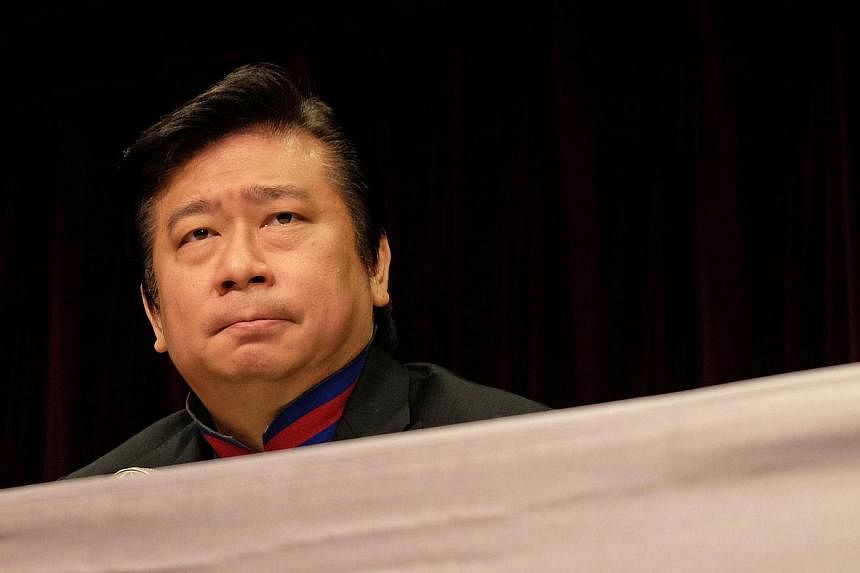TAIWAN'S No. 2 official in charge of cross-strait relations is being investigated for allegedly leaking state secrets to China - the most senior official ever thus accused.
Analysts say the case will test the beleaguered cross-strait relationship, with negotiations for new pacts already proceeding at a glacial pace due to political gridlock in Taiwan and especially after a student protest in March over a trade pact with the mainland.
Former deputy minister of the Mainland Affairs Council (MAC) Chang Hsien-yao is accused of violating the National Security Information Protection Act during his time at the MAC, where he worked from 2012 until Aug 16 when he was forced to resign. No specific instances have been cited.
He was also vice-chairman and secretary-general of the Straits Exchange Foundation, Taiwan's semi-official negotiating body with China.
On Monday, Mr Chang reported to prosecutors, where he protested his innocence.
"I am here to bring the truth to light," he told local media on arrival. "All the rumours that I have leaked state secrets, divulged where (Taiwan's) bottom lines were during negotiations, and given documents classified as secrets to (Chinese officials) are absolutely not true."
The Taipei District Prosecutors' Office last Friday accepted a request from the Ministry of Justice's Investigation Bureau to look into the allegations. The case has been classified as "zhen" or "being investigated", reports said.
Mr Chang is barred from leaving Taiwan and has to report back to his residence every night.
The case, however, has been shrouded in confusion, with conflicting signals from the MAC on Mr Chang's liability.
It initially said he had resigned for "family reasons" before Mr Chang revealed that he was being ousted.
It later emerged that his boss, MAC minister Wang Yu-chi, offered him the post of chairman at a state-owned enterprise after his removal. Mr Wang tried to explain that the council was trying to be "fair" to Mr Chang as he had not been found guilty.
The to-and-fro sparked public speculation that this has something to do with in-fighting in the ruling Kuomintang.
Whatever the reason, the case will affect cross-strait relations, given Mr Chang's previous status as a high-ranking official, say analysts. He was, for instance, the chief negotiator for the services trade pact that was signed last year but has yet to be ratified by Taiwan's legislature.
Professor Tung Chen-yuan of the National Chengchi University, who was an MAC deputy minister during President Chen Shui-bian's tenure, said it was the first time since 1949 that such a charge had been levelled at a senior official. Previous espionage cases involved mainly "low-level military officials" who worked for the Chinese.
Now, Prof Tung said, all pacts with China that Mr Chang was involved in will likely be reviewed or even suspended.
"There will be questions on whether he fully represented Taiwan's interests when negotiating these deals with China."
The MAC's credibility could be affected, he added, even as China exercises greater caution in negotiating with Taiwan.
Already, talks on a goods trade deal have stalled since April. These were set to resume by the end of this month but had been postponed as Beijing said it needed more time to prepare.
Dr Chao Chien-min, an MAC deputy minister during President Ma Ying-jeou's first term, said: "The momentum was already slow, and this is, as the Chinese say, xue shang jia shuang - frost on top of the snow."
Additional reporting by Pearl Liu

